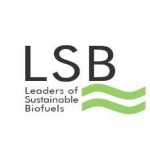 PRESS RELEASE – The Leaders of Sustainable Biofuels, the EU group of industrial leaders in Advanced Biofuel technology, appreciate the limit on conventional biofuels and the dedicated target for truly advanced biofuels. The Leaders support the categorization of UCO/tallow as conventional biofuels: however, LSB request the policy makers to revise the Rapporteur Corinne Lepage’s (ENVI) decision amending the Renewable Energy Directive (RED) and the Fuel Quality Directive (FQD) adopted on 11 July 2013.
PRESS RELEASE – The Leaders of Sustainable Biofuels, the EU group of industrial leaders in Advanced Biofuel technology, appreciate the limit on conventional biofuels and the dedicated target for truly advanced biofuels. The Leaders support the categorization of UCO/tallow as conventional biofuels: however, LSB request the policy makers to revise the Rapporteur Corinne Lepage’s (ENVI) decision amending the Renewable Energy Directive (RED) and the Fuel Quality Directive (FQD) adopted on 11 July 2013.
LSB strongly believe that it is essential for an effective implementation of the proposal, that the feedstock eligible for advanced biofuels production are derived from lignocellulosic biomass (i.e. straw, bagasse, EFB, forestry residues, lignocellulosic energy crops, crude tall oil & tall oil pitch), or are manufactured from the biomass fraction of municipal wastes: all of these feedstock are truly sustainable. It is however essential that fraudulent activity of feedstock categorization is eliminated.
Call for Actions
The LSB emphasize the need to implement the following measures as a revision to RED and FQD:
- Include a higher target of at least 2,5% for advanced biofuels by 2020;
- Include intermediate targets in order to reach the dedicated mandate for advanced biofuels by 2020;
- Include ramp-up targets beyond 2020 for advanced biofuels;
- Revise the complex and impossible to implement criteria (with respect to diversion from existing uses) and definitions of hierarchy of waste and residues;
- Include cellulosic non-food and lignocellulosic materials from agricultural residues and energy crops in the advanced biofuels feedstock list;
- Include palm empty fruit bunches in the advanced biofuels feedstock list.
EU advanced biofuels aborted?
The ENVI proposal aims at developing advanced biofuels but the proposal will in fact negatively impact the deployment of ligno-cellulosic advanced biofuels. After a full decade of invested time and resources into the development of next-generation lignocellulosic biofuels by private companies and the EU Commission, we are now ready to enter full-scale production with commercial scale plants.
The ENVI Committee’s decision risks a scenario in which the development of commercial production facilities of our advanced biofuels will move outside Europe, where policy frameworks are more suitable and ready to seize this great opportunity. The consequence of such unilateral action – if it remains as proposed by the ENVI Committee – would ultimately drive investments and jobs outside EU, where the use of agricultural/process residues/wastes and energy crops is encouraged and where consistent strategies promote Advanced Biofuels development. This will mean that new jobs, new businesses and greater sustainability will be created outside EU, while Europe will import advanced biofuels, produced through the commercial deployment abroad of EU- funded technologies.


